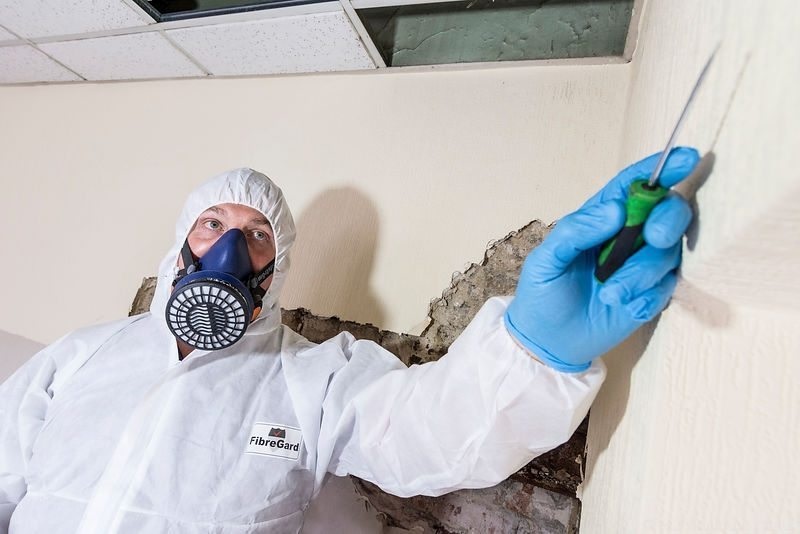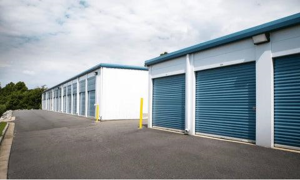London Asbestos Surveys: Types and Legal Requirements

In the bustling heart of London, amidst its iconic architecture and rich history, lies a silent yet potentially deadly threat – asbestos-containing materials (ACMs). As a responsible property owner or manager, it’s crucial to understand the ins and outs of London asbestos surveys to ensure the safety and compliance of your non-domestic premises. This article examines the various types of asbestos surveys in London and their legal implications.
Is an Asbestos Survey a Legal Requirement in London?
If you own or maintain non-domestic premises constructed before the year 2000, you are legally obliged to manage any ACMs on the property. This entails commissioning an asbestos survey conducted by a qualified surveyor. Failing to do so could expose you to severe legal repercussions, as the Control of Asbestos Regulations 2012 mandates a duty of care to safeguard all visitors to your property.
Understanding the Types of Asbestos Surveys
Historically, asbestos surveys were classified into confusing “Type” 1, 2 & 3 categories, leading to confusion and mistakes. However, the Control of Asbestos Regulations 2012 has streamlined the process, resulting in two principal types of asbestos surveys, each dependent on your non-domestic property’s intended use.
Management Asbestos Survey
The cornerstone of asbestos surveys, the Management Asbestos Survey, is a prerequisite for all Duty Holders. A Duty Holder is an individual legally responsible for overseeing asbestos management within a non-domestic property. This survey primarily involves visual inspections, with minimal intrusive work and selective material sampling.
A Management Asbestos Survey is imperative for most operational commercial or multi-tenancy properties. Its goal is to ensure the safe management of ACMs on the premises, preventing harm to anyone. Moreover, it ensures that measures are in place to prevent accidental disturbance. The survey also offers guidance on maintaining a safe environment and outlines necessary steps for remedial work, if required.
Once you have an asbestos survey in place, the Duty Holder must implement an asbestos management plan, ensuring the safety of occupants and tradesmen. Regular reviews of the plan, especially after material changes or at least annually, are essential.
Refurbishment/Demolition Asbestos Survey
Before undertaking significant refurbishments, remedial works, or demolition of premises, a Refurbishment/Demolition Asbestos Survey must be conducted. This survey becomes essential when the planned work exceeds the scope of the original Management Asbestos Survey, especially if it involves invasive tasks like heating system replacements, window installations, ceiling modifications, or electrical work.
For this survey, a qualified asbestos surveyor is usually required. It involves disturbance of materials and destructive inspections of ACMs, and the survey area should ideally be vacant during the process to minimize risks.
Failure to conduct a Refurbishment/Demolition Asbestos Survey before extensive work can result in violations of the CAR 2012 Regulations and potential enforcement actions.
Re-inspection Asbestos Survey
The phrase ‘re-inspection asbestos survey’ pertains to the Control of Asbestos Regulations CAR 2012 management aspects. As part of the asbestos management plan, ACMs should be regularly reinspected, especially following material changes or at least annually. This ensures that Duty Holders maintain a chronological record of fulfilling their legal obligations.
ACMs can deteriorate over time or get damaged during maintenance work, making these regular re-inspections vital. As property caretakers across the UK, we offer this essential service to safeguard your premises.
Wrapping It Up
In the London’s busy streets, the menace of asbestos waits quietly. Understanding the types of asbestos surveys is paramount to ensure the safety of your non-domestic premises and adhere to legal requirements. Whether it’s the fundamental Management Asbestos Survey or the pivotal Refurbishment/Demolition Asbestos Survey, your commitment to safety speaks volumes.
For advice on different types of asbestos surveys, remember that all surveyors should be appropriately trained and monitored, adhering to the standards outlined in the Health and Safety Guidance Document HSG 264. Stay vigilant, stay safe, and protect the rich heritage that London has to offer.







